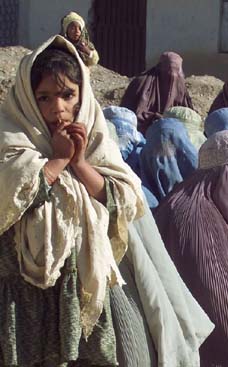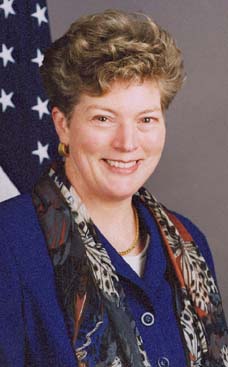
Wherever he goes, Mr. Theroux’s great discovery is that the world is changing while also remaining sort of the same — a good thing, except when it isn’t. In general he takes the side of the “old-fangled” past, especially when he can make a self-dramatizing cameo in it. Chatting with an impoverished rickshaw driver who sees no future in police-state Myanmar, Mr. Theroux concludes, “Like me, he too was a ghost — invisible, aging, just looking on, a kind of helpless haunter.” Author Paul Theroux served as a Peace Corps Volunteer in Malawi in the 1960's.
Theroux rarely misses a chance to complain about the roiling indigenous crowds or tartly abuse the lobster-faced European pleasure seekers and fat American missionaries who cross his path
Globe-Tripping Again With a Vagabond Scribbler
By JENNIFER SCHUESSLER
Published: August 21, 2008
Like any conscientious traveler, Paul Theroux begins his latest voyage with a thorough round of inoculations. Travel, he’s well aware, is “an elaborate bumming evasion, allowing us to call attention to ourselves with our conspicuous absence while we intrude upon other people’s privacy.” Travel writing is “a license to bore,” “the lowest form of literary self-indulgence.” Yes, yes, he knows: “It’s much harder to stay at home and be polite to people and face things, but where’s the book in that? Better the boastful charade of pretending to be an adventurer.”
Besides, what is a professional vagabond to do? More than three decades ago, Mr. Theroux helped kick off the boom in modern travel writing with “The Great Railway Bazaar,” his rollicking and hugely successful account of a 25,000-mile overland journey through Asia. Since then, it seems, even the diviest parts of the world have filled up with backpackers and “opportunistic punks” trying to get a piece of the literary action. But retracing one’s own youthful steps, as he does in “Ghost Train to the Eastern Star,” is still, he assures us, quite original.
And so he’s off, visiting the ballet in Tbilisi, call centers in India, former Khmer Rouge torture chambers in Cambodia, the empty work camps hidden in the hills along the Trans-Siberian Railway and countless points in between. He has dinner with Orhan Pamuk in Istanbul, visits Arthur C. Clarke in Colombo and browses for kitchenware in Tokyo with Haruki Murakami. But mostly he seems to be either moving toward one destination or trying to arrange the tickets, as if in pursuit of a breakneck land-speed record. As he tells us again and again (and again), the train is the way to go. “It was easy to prettify a nation in an airport,” but trains show you “a place with its pants down.”
Mr. Theroux peeks into plenty of brothels and rejoices in the enduring unspeakability of many of the world’s toilets, but on the whole the book reveals less about the naked reality of the world than the slackened curiosity of the author. Visiting regions transformed by war, genocide, imperial implosion and runaway development, Mr. Theroux at times seems to have just two really burning questions on his mind: Do you like George Bush, and have you heard of Paul Theroux?
Fortunately, the answers to those questions are not the same. In Baku, Mr. Theroux is annoyed when a literary-minded tour guide doesn’t notice his own afterword in the back of an Azeri classic. But his spirits lift in Thailand, where he spots a backpacker reading his novel “The Mosquito Coast.” (“I’m like way convinced,” she tells her friends. “Way, way.”) In Phnom Penh, he finds smudged bootleg copies of his own books in a local bookshop and flashes his driver’s license photo, waiting for the proprietor’s “gratifying” recognition.
In a Jodphur hotel, he lines up to introduce himself to Prince Charles, who is departing a water conservation conference. “Paul Theroux,” he says, one dignitary to another. “You came to the premiere of the film of my book ‘The Mosquito Coast’ in London 20 years ago. I’m sure you don’t remember.” But of course the prince remembers. Is Mr. Theroux working on a book right now? “Trying, your highness. Scribble, scribble.”
Mr. Theroux’s scribbling does yield some nice moments of dehumidified wit and snow-dusted nostalgic repose. But too often he displays little more than a hurried, irritable interest in the places he visits, especially if they have the nerve to have embraced “meretricious modernity.”
He grudgingly visits Bangalore, a former backwater now full of “pirates wearing dark suits and carrying cellphones instead of cutlasses.” (As for his own BlackBerry, he almost never allows it to ring within earshot of the reader.) Mr. Theroux is appalled that Indian call-center workers earn only a fraction of what Americans doing the same work in Boise or Cedar Rapids do, but he doesn’t pause to ask how anyone except the “dropouts” feels about the job. Back at his hotel he seems relieved to read an article about self-immolation: “Everyone talked about the new India, but the old India was never far away.”
Wherever he goes, Mr. Theroux’s great discovery is that the world is changing while also remaining sort of the same — a good thing, except when it isn’t. In general he takes the side of the “old-fangled” past, especially when he can make a self-dramatizing cameo in it. Chatting with an impoverished rickshaw driver who sees no future in police-state Myanmar, Mr. Theroux concludes, “Like me, he too was a ghost — invisible, aging, just looking on, a kind of helpless haunter.”
Except that Mr. Theroux never stays invisible for long. In an old colonial hill station near the Chinese border he stumbles onto the son of Mr. Bernard, the former cook in the Royal Artillery mess whom he met on his first trip. The son, overjoyed to meet the American writer who had conjured so many tourists clutching copies of “The Great Railway Bazaar” and asking about his father, invites Mr. Theroux home for tea and a flip through the family albums. “It was a homecoming I had not expected,” Mr. Theroux writes, “like a visit to generous grateful relatives I had not seen in decades.”
But ingrates, it turns out, also make good copy: In Singapore — a money-grubbing place insufficiently appreciative of the literary attention lavished on it by “Joseph Conrad, Somerset Maugham, Anthony Burgess or even me” — Mr. Theroux is delighted when his visit causes a stir in the press, which digs up former students accusing him of having been “arrogant” and frequently late for class when he taught there in the early ’70s.
Mr. Theroux rarely misses a chance to complain about the roiling indigenous crowds or tartly abuse the lobster-faced European pleasure seekers and fat American missionaries who cross his path. But on the homestretch of his journey he pauses, perhaps a bit nervously, to hang an overly fragrant lei around the neck of his loyal traveling companion, the reader.
“Most serious and omnivorous readers are alike — intense in their dedication to the word, quiet-minded, but relieved and eagerly talkative when they meet other readers and kindred spirits,” he writes. “If you have gotten this far in this book, you are just such a singular person.”
Too late. Readers who have made it this far may instead be wondering why they didn’t heed Mr. Theroux’s initial warnings and jump off this self-indulgent memory express.













